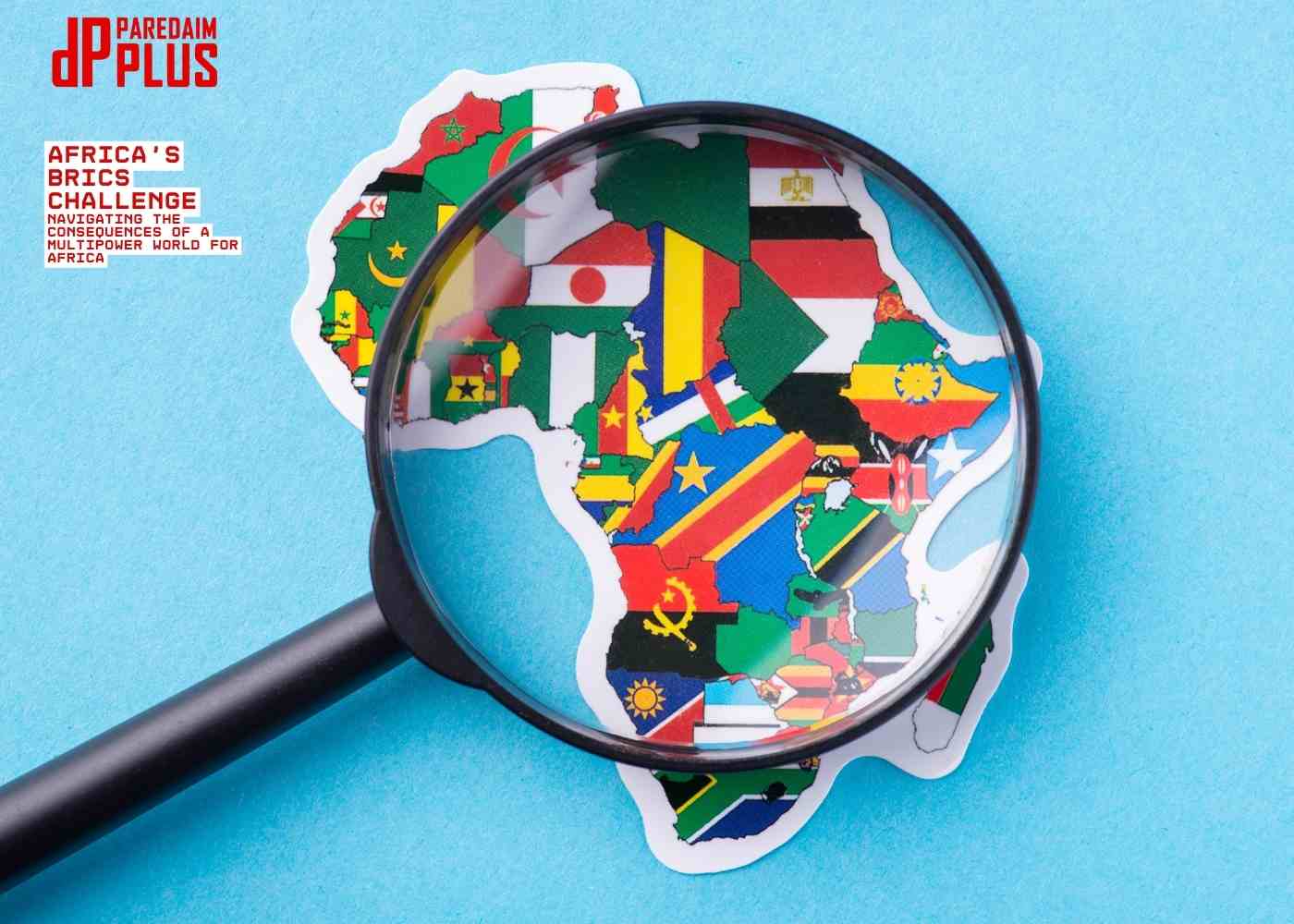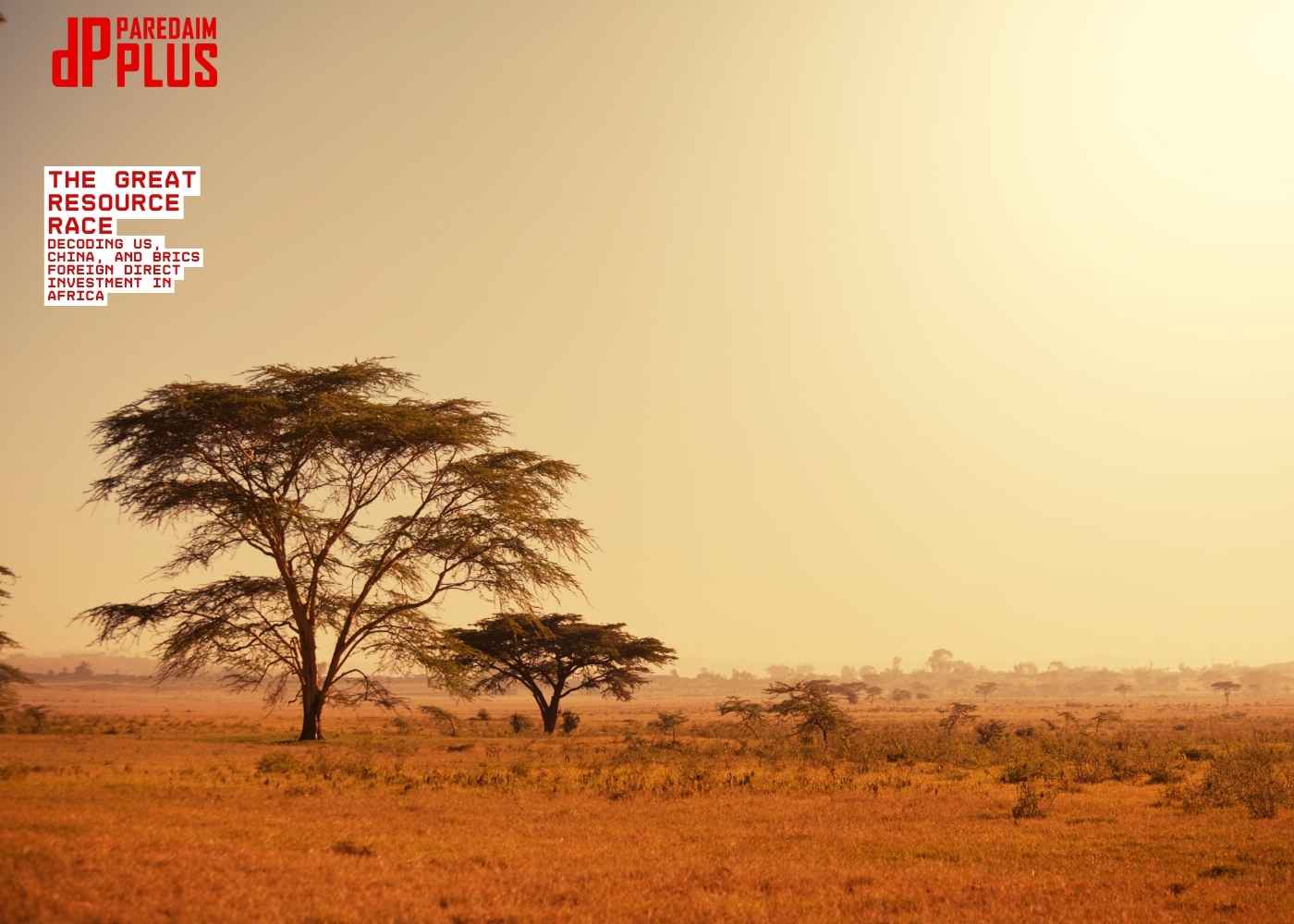
There is a change in world geopolitics, and the BRICS
transformation is not one of the last shifts that can be made. What started as
a loose group of the rising economies Brazil, Russia, India, China and South
Africa has now doubled in number. Egypt, Iran, Ethiopia, Saudi Arabia and the
United Arab Emirates officially joined the bloc in 2024, not only providing a
symbolic competition to the West but also becoming a significant economic and
political force.
This enlarged BRICS coalition already has a population of
over 46 per cent of the world, and it is now controlling almost 40 per cent of
all oil production in the world. The inclusion of new members such as Saudi
Arabia and the UAE allows the bloc to transform world trade and, more
significantly, the hegemony of the U.S. dollar in the energy markets.
However, Nigeria, which is the largest economy of Africa,
and Ghana, which is one of the most stable democracies, remain off the table.
The question is, why, and is even membership of BRICS a correct direction for
African countries?
BRICS 2.0: Idea to Opposition
By the time the acronym BRIC was coined by Goldman Sachs
economist Jim O Neill in 2001, the term referred to the emerging economies of
the world that were growing the fastest. South Africa was made BRICS in 2010.
However, the increase in 2024 completely changes the power distribution. This is
not merely an economic bloc, but it is becoming a geopolitical platform that
seeks to diminish Western domination, and especially the monopoly of the dollar
in the world market.
BRICS already tries to experiment with local currency
settlements, gold-backed trade agreements, and a possible alternative to the
petrodollar system. When oil is traded in yuan or rupees, or even a BRICS
currency, the effect on world finance may be apocalyptic. The U.S. currency,
which represents almost 60% of the world's foreign currency reserves (IMF,
2023), is being challenged in a way that has never been credible since the
Bretton Woods system failed in the 1970s.
The Nigerian and Ghanaian Absence
The lack of Nigeria is impressive. It has more than 220
million inhabitants, huge oil deposits, and the biggest GDP on the continent,
and thus it appears to be a natural match. Ghana has been a smaller country,
but has established itself as an example of democratic stability and alignment
with the IMF. So why are they not in BRICS?
According to the analysts, there are two key causes:
1. Geopolitical Balancing: Nigeria is close to China as well
as the West. The BRICS may upset the balance by becoming members, as it would
complicate its relations with different countries.
2. Domestic Unrest: There are security issues, governance
issues, and economic instability, which could question the ability of Nigeria
to compete on the BRICS level.
In the case of Ghana, the country is smaller and is closely
related to the IMF, and that is why it is more aligned with Western
institutions.
However, the exclusion will probably not be permanent.
Assuming that BRICS is further expanded, Nigeria will probably be on the
shortlist. Whether Nigeria is a joiner is the smaller question, but whether
Nigeria should be is the major question.
Should Africa Be in BRICS at All?
The critics say that BRICS is not necessarily a partnership;
it is rather about the development of the strategic objectives of China. They
caution against the same game new empire, where Africa exchanges one type of
dependency for another. Professional opinion opposes that joining BRICS will
provide African states with leverage, alternative financing and avoid austerity
like the IMF.
In the meantime, Africa has its integration projects. The
African Union (AU) has long been dreaming of a single continental currency, and
West Africa has produced the Eco. Even though there are suggestions to support
such a currency by the abundant natural resources of Africa: lithium, coal,
water and so on. However, deadlines continue to slip, and political confidence
is still weak.
The predicament is evident; the more the BRICS takes in
African giants, the more difficult it will be to create a combined African
financial system. However, it may not be a case of either.
Dual Strategy: BRICS for Leverage, Africa for Sovereignty
A two-prong attack can be the most intelligent one:
- Selective engagement of BRICS: Find good trade bargains,
demand technology transfer, and other forms of financing that are not run by
the Western-dominated systems.
- Create an African base of Build Africa: Triple down on
regional currencies, invest in intra-African infrastructure, and make trade
stronger on the continent.
India provides a very valuable example here. It connects
with all, BRICS, the West and more, but lays more emphasis on domestic
capacity. Turkey also demonstrates the way to strike a balance between multiple alignments. Ankara was able to absorb the economic pain by resisting IMF
intervention even when its lira collapsed.
In the case of Africa, it should follow the same priority,
to remain strategically independent and exploit external opportunities.
Intra-African Trade: The Potential Power
Africa exports much more to Europe, China and the U.S. than
to Africa. The African Development Bank stated that less than 15 per cent of all trade between African countries is intra-African, compared to 60 per cent in
Europe and 50 per cent in Asia. The African Continental Free Trade Area
(AfCFTA), which was initiated in 2021, is expected to alter this by
establishing the largest free trade region in terms of population.
However, unless transport corridors, energy grids and
digital infrastructure are invested in to support AfCFTA, it might be seen as a
symbolic move, as opposed to a transformative one. Once more, BRICS might come
in handy: Africa needs to conclude infrastructure transactions that would not
be tied to any debt traps but rather some transfer of knowledge, technology,
and property.
The Risk of Overreliance
The problem of overreliance is the most vulnerable in
Africa, according to history. Whether it is Western aid, Chinese loans, or
exporting commodities, the external dependence leads to cycles of
vulnerability. Entering BRICS, without a definite domestic agenda, may just
replicate the same game with fresh participants.
The moral is obvious, a good home base is the key point of
defence. Africa should not replace one master with another. It should be
governed by strategic independence, rather than blind alignment.
Conclusion
The rise of BRICS is an indicator of a different era in the
world. The bloc is posing a serious alternative to Western domination with oil
giants and population heavyweights on board. The opportunity is real for
Africa, but the risk is also real.
The fact that Nigeria and Ghana are absent can be taken as
some form of caution, however, sooner or later, they will have to make the
decision. Should they become BRICS and get leverage? Or would they do nothing
but work at developing African-led solutions?
The best course of action is between the two. Brics as a
strategic leverage, but do not forget the bigger picture, which is to develop
African financial and political architecture. Otherwise, any collaboration, be
it with Washington, Beijing or BRICS, will turn out to be another round of
dependency.
The future of Africa will never be achieved by taking sides.
It will be fixed by creating a base that is solid so that no other force, new
or old, can determine its course.






